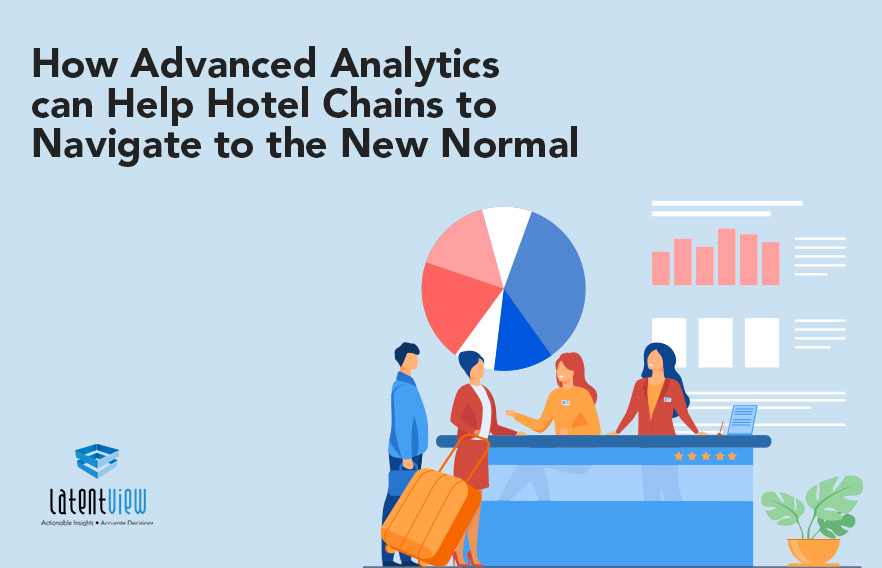The Covid-19 pandemic has rattled the businessworld with dropping GDP and recession looming over the countries. The hospitality industry is one of the most impacted sectors. Due to lockdown, restricted travel, and lack of vaccine, leisure travel have taken a beating. Adding insult to the injury, many companies have imposed travel restrictions on both domestic and international travel. As a result, the business segment to has been impacted, and the demand for conventions, trade shows, and sporting events etc., looks bleak for the foreseeable future.
A report from PwC quotes that there would be a decline in occupancy by 41% and a 20 % fall in average daily rate resulting in a 53% decline in RevPAR. Another report by BCG states that there is an 80% decline in hotel bookings. These are unprecedented times for the hotel industry, with many of the hotels shutting down due to rising costs and falling revenues.
What can hotel chains do?
The hotel companies might shift to more digital marketing to make up for the lost time during the closures. Be it launching new websites, making engaging travel content; hoteliers are heading every way possible to stay top of mind and be in touch with prospective future customers. Here are some ways that analytics could help the hoteliers to stay ahead of the curve
Web Analytics
With economies opening up across the globe, the number of hotel bookings in May has improved compared to April, but it is still a long way before normalcy is restored. Since most of these bookings happen through the hotel’s website, the customer journey can be tracked using web analytics. From the customer journey data, some of the key information around demographics, as well as the source, the medium can be obtained. This data collection is possible if the website has been configured with platforms like google analytics, adobe analytics, etc. The collected data is invaluable on two accounts. One, targeted marketing can be crafted addressing a common source to increase the conversion rate, and based on consumer behaviour, segmentation can be done using clustering techniques to identify the target segments for marketing campaigns to increase the conversion rate. Two, some of these data can be used along with the historical data for forecasting the demand for the coming months.
Automation and Intelligent Assistant –
There are many manual processes involved in the day-to-day functioning of a hotel. One such method is the commission payment. This process involves checking the inquiries, scanning the contracts to identify the payment terms and conditions, cross-checking across multiple internal systems before authorizing to pay the commission to agents. Companies might want to automate processes like commission payment considering both the short term and long-term benefits as it brings in cost reduction as well as efficiency. With the demand expected to be higher than usual upon recovery, Intelligent Automation can aid the companies in automating the process, such as the commission payment by adding an intelligence layer to robotic process automation. Also, hotel chains can consider implementing intelligent assistants to reduce the dependency on the back office process and call centers.
Social Analytics and NLP –
As few economies are opening up to tourism for summer travel, identifying similar destinations and finding out the demand, risks, challenges, and the actions taken would help in devising a better plan. For example, assume a destination is similar to the US Virginia Islands/ St. Lucia, popular destinations that have already started welcoming tourists. Using social analytics, one can understand the user preferences, behaviour, and sentiments around various areas such as reception, maintenance services, restaurants, bar & dining, cleaning & housekeeping, etc. and plan their opening better. While planning, it is also worth knowing what the competition is up to. Hoteliers could capitalize on web scraping and NLP solutions to determine the trends around the industry and track your competitor’s recent activities, thus identifying an action plan that would mitigate risks in similar markets.
Conclusion
With hospitality industry undergoing tremendous changes and disruptions over the last decade, businesses need to review and revise business strategies. There is no doubt that analytics would help the industry get better for both the business and the customers. In a time of crisis like this, a data-driven approach to the problem can enable the company to get back on its feet swiftly. It is essential that they pay attention to data and understand the likes and dislikes of their customers, thereby making sure to maximize the RevPAR by utilizing the most profitable channels, and offer the right room at the right price to the right customer.




